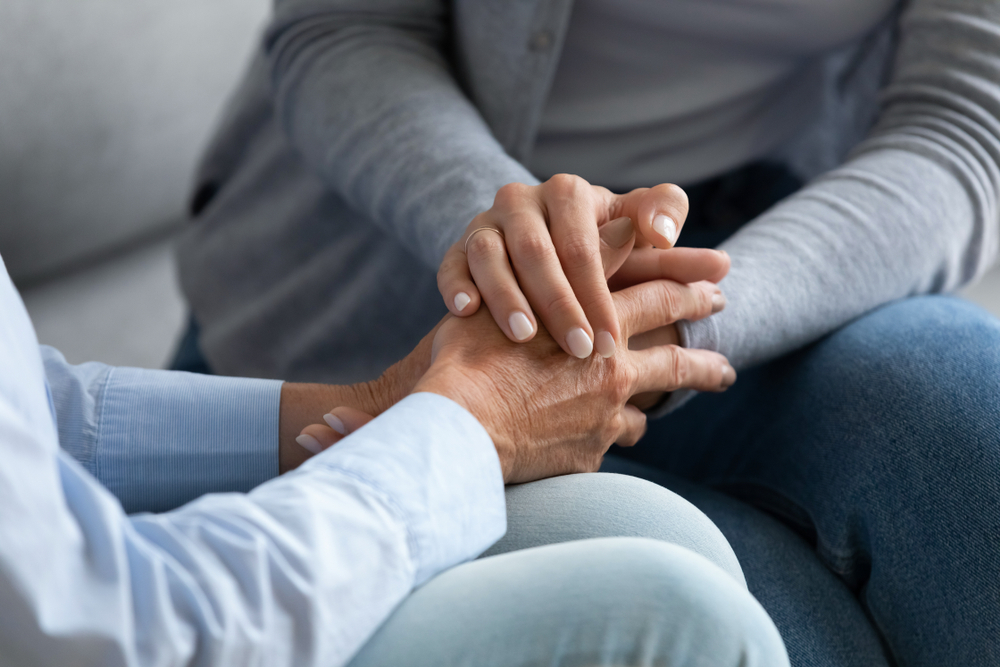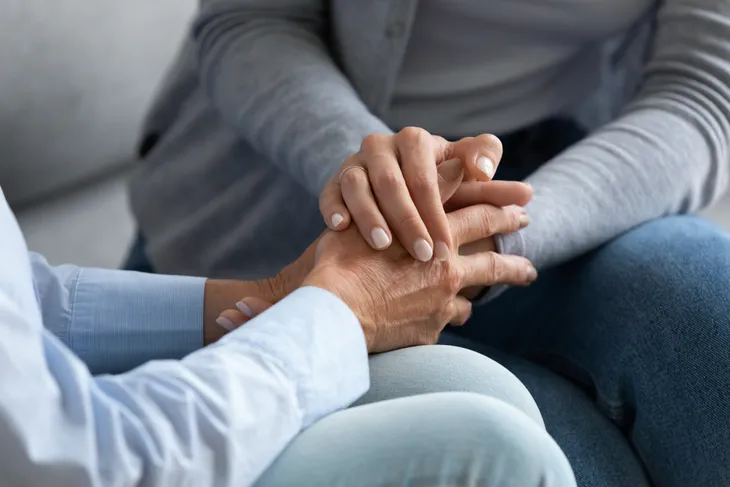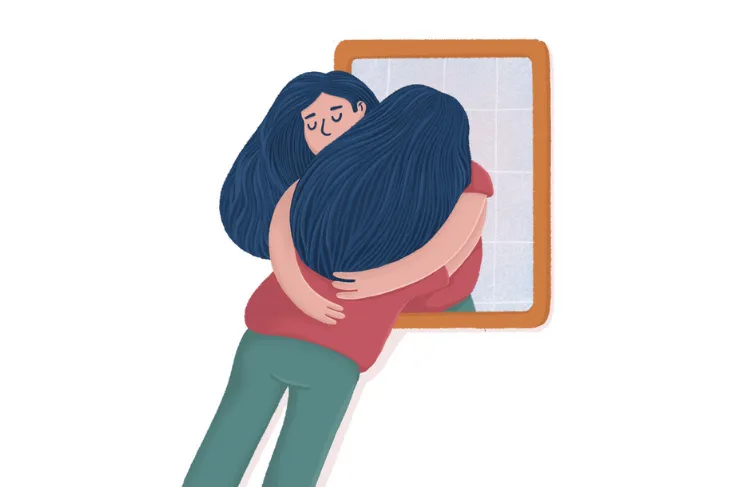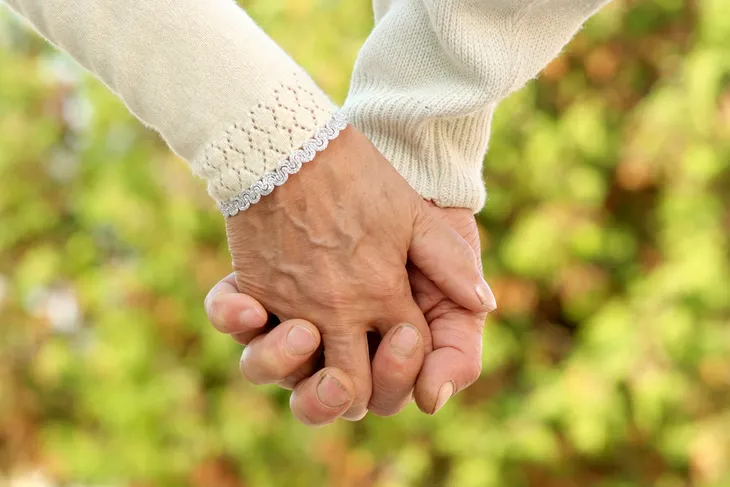Many people experience grief at least once in their life but knowing that doesn’t necessarily make navigating it any easier. Loss can bring about life-altering change and the shock of that can linger for months and sometimes years. Everybody experiences grief in their own way, but sometimes understanding the five stages and studying ways to withstand them can bring comfort.
In this article, we’re going to take a closer look at what constitutes grief, the five stages, and how best to cope with it. We’ll also look into when it’s appropriate to seek help.
What Is Grief?
Grief is most associated with the loss of a loved one, but that’s not always the case. At its root, grief is the natural human response to a loss of any kind. Divorce, loss of health, losing a job, retirement, the passing of a pet, the loss of a friendship, the loss of safety after trauma, and even the sale of a family home can bring about feelings of grief and despair.
The process can be loud, quiet, secret, or out in the open, with much of it being determined by an individual’s coping style and personality. Having said that, much of what we now understand about grief is drawn from the “five stages of grief” written by Elisabeth Kubler-Ross in 1969.
The model is far from prescriptive, but it remains a helpful tool in our conversations surrounding coping and grief. So, let’s look at the five stages to better understand the whirlwind of emotions commonly experienced in the face of loss.
Stage One: Denial
The Kubler-Ross model lists denial first, but this stage is better understood as a prolonged period of emotional shock or numbness. When confronted with the enormity of the loss, a lot of people respond by pretending that the loss or change isn’t happening at all. It’s a defense mechanism that allows a person to process their emotions gradually instead of all at once.
The denial stage can be as subtle as a feeling of numbness or as dramatic as full-on delusion. This stage doesn’t always come first, and it may not show up at all. Grief is a fluid process that can vary substantially from person to person. The way that individuals experience or don’t experience the denial stage is proof of that.
Stage Two: Anger
The second stage of grief is anger, and though it can lead to a period of volatility, it’s a healthy element of the grieving process.
Where denial and numbness are typically considered coping mechanisms, anger acts as more of a mask. Though this stage can be expressed in a variety of different ways, the goal remains the same: to protect and deflect the mind from experiencing the pain of loss.
A grieving person’s anger could be directed at the situation, themselves, other people, and more. Though it can get messy, it’s always important to find appropriate ways to release those angry feelings.
Stage Three: Bargaining
The desire for control is very human, and that desire doesn’t go away in times of crisis. It’s in the third stage of the grieving process that this tendency takes center stage.
Bargaining often comes into play when we feel most vulnerable and it serves as a way for us to change the tragic outcome. This stage is full of thoughts like, “if only we would have gone to the doctor’s sooner” or “maybe if I didn’t call in sick so much I’d still be employed.” For religious individuals, bargaining often presents as a conversation with a higher power.
Whatever your spiritual inclination, bargaining rarely unearths a tangible solution. That’s not to say that this stage is altogether fruitless. In its own way, bargaining helps us slowly come to grips with the loss that we suffered in bits and pieces that are much easier for us to process.
Stage Four: Depression
Depression is the fourth stage and can be exceedingly difficult for some people. This stage presents the first opportunity for most people to directly process the loss.
Some may choose to isolate themselves and some may become quieter and retreat into their own thoughts more willingly. It can be associated with feelings of emptiness, hopelessness, purposelessness, and worse, it feels like there is no end in sight. The depression stage can be particularly difficult for a person’s support circle, too.
Getting Through Depression
The truth is there’s nothing to fix. At least, not in the traditional sense. As unnatural as it may sometimes feel, the depression stage of grief can be a critical step in allowing the grieving person to eventually move on.
People always want to know how long they should expect this stage to last. It’s understandable if not a little short-sighted. Grief has no playbook and no set rules. Having said that, members of a grieving person’s support system should be on the lookout for pronounced isolation and disconnection. If the grieving individual is beginning to avoid help and retreat from their support system, then it may be time to seek professional help.
Stage Five: Acceptance
Acceptance is the end goal of the grieving process, but it doesn’t always present a joyful outcome. This stage is all about coming to terms with loss and understanding that life doesn’t have to stop. Acceptance is the period in which the grieving individual can embrace both the good and bad elements of their new reality and move forward.
This stage is also commonly associated with feelings of ownership and responsibility. Loss can bring about a lot of feelings of helplessness, but in the acceptance stage, a person begins to recognize the elements of their life that they do have control over, and they begin to exert their will over those things.
Though many who experience loss carry the weight of that sadness with them forever, acceptance allows them to still be able to enjoy the happy memories that they experienced before the loss ever happened.
The Physical Symptoms of Grief
We spend a lot of time talking about the emotional symptoms of grief but it can bring about physical symptoms as well. Some common physical symptoms of grief include fatigue, nausea, lowered immunity, weight loss or weight gain, aches and pains, and insomnia. Headaches, shortness of breath, stomach pain, and a diminished appetite are common too.
 Dragana Gordic / Shutterstock
Dragana Gordic / ShutterstockHow to Cope
It can certainly feel like the sadness, depression, and anger associated with loss is inevitable, and in some respects, it is, but that doesn’t mean that there aren’t things that you can do to help ease the discomfort of the loss.
Seeking support can help substantially in times of crisis. Talk to friends, draw comfort from your faith, join a support group or reach out to a grief counselor or therapist. Understand that a lot of people may feel uncomfortable discussing grief but know that those who reach out care and want to help in any way that they can.
More Ways to Cope
Again, there’s no “correct” way to grieve, but there are steps that you can take to ease the burden. Sinking into hobbies can help, as can exercise and maintain a healthy lifestyle.
Creatively expressing your feelings can help too. Either way, it’s important to be mindful of the highly personal nature of your grief. Don’t ever let anyone tell you it’s time to move on or get over it.
When to Seek Help
When should an individual seek help? It’s a complicated question with no easy answer. For starters, there’s no reason you can’t seek help proactively. Even if you don’t feel depressed, angry, or sad, you may still be able to benefit from the guidance and insight of a professional counselor.
From a medical standpoint, it’s important to seek help if you feel that you are at risk of hurting yourself, or if you feel as if you can no longer attend to your basic needs like food, clothing, and shelter. You may be concerned with how long your grieving process is enduring too, and in that case, a professional’s opinion could bring comfort.
Understanding Grief
Grief is emotional, personal, and an essential element of life and love. There’s no easy way to experience it and there are no shortcuts. But, understanding the process and taking some steps to move that process along, can have a lasting effect on how you process loss moving forward.














